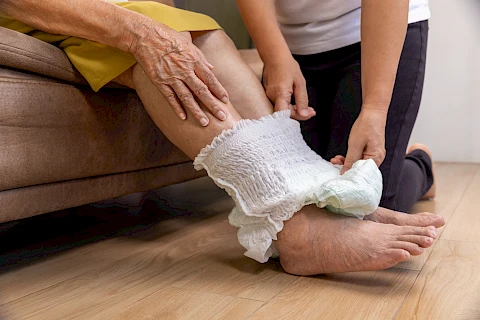
Dealing with incontinence can be challenging for many seniors and their caregivers. It's a sensitive issue that requires understanding, care, and practical strategies to manage effectively. Maintaining dignity and respect while supporting senior health and comfort is crucial. From using appropriate products and addressing underlying medical issues to establishing a toileting routine and modifying the home environment, caregivers have various tools at their disposal when managing senior incontinence.
Incontinence in Older Adults
Incontinence or loss of bladder or bowel control is common among seniors. Its causes can vary, ranging from urinary tract infections and prostate issues to more complex neurological conditions such as Alzheimer's or stroke. Age-related changes such as reduced bladder capacity and increased urgency also contribute. Seeking medical advice is crucial for proper diagnosis and tailored treatment, ensuring seniors maintain dignity and quality of life.
Importance of Maintaining Dignity and Respect
Senior incontinence can impact an older adult’s emotional well-being, often leading to feelings of embarrassment or loss of independence. Caregivers must approach the issue with sensitivity, understanding, and respect. Simple measures such as providing privacy during toileting and ensuring cleanliness can go a long way in preserving a senior's dignity.
Using Appropriate Products
A wide range of products can assist with incontinence, including absorbent pads, adult diapers, and bed protectors. Product choice will largely depend on the senior's level of mobility, cognitive function, and the severity of their incontinence. These products can ensure comfort and discretion, helping to maintain the senior's confidence and quality of life.
Addressing Underlying Medical Issues
In many cases, incontinence in seniors is a symptom of an underlying medical condition, such as urinary tract infections, prostate problems in men, or pelvic floor disorders. Regular medical check-ups are vital in identifying and addressing these conditions early on. Caregivers should openly communicate with healthcare providers about the senior’s incontinence issues and other changes in their health to ensure appropriate monitoring and treatment.
Establishing a Toileting Routine
Consistency and routine can play a significant role in managing senior incontinence. A regular toileting schedule can help train the senior's body to maintain control. Consider the senior's meal times, fluid intake, and physical activity. A successful routine should meet the senior's unique needs, providing predictability for the senior and the caregiver.
Modifying the Home Environment
Practical home modifications can significantly improve a senior's ability to manage incontinence. Ensure the bathroom is easily accessible, well-lit, and equipped with aids such as grab bars, if necessary. Water-resistant mattress covers and underpads protect bedding and furniture. Odor-control products can help maintain a fresh and clean environment.
Get Senior In-Home Support at Senior Helpers
Managing incontinence in seniors can be challenging for caregivers. With the right strategies and practical solutions, caregivers can enhance a senior loved one's overall well-being and comfort, ensuring they live fulfilling lives with dignity and respect.
If you’re in Haddonfield, Maple Shade, Voorhees, Swedesboro, or Pennsauken and need support in managing incontinence for a senior loved one, don't hesitate to contact us. The Senior Helpers Cherry Hill team is committed to providing the support, care, and resources you need in your caregiving journey.